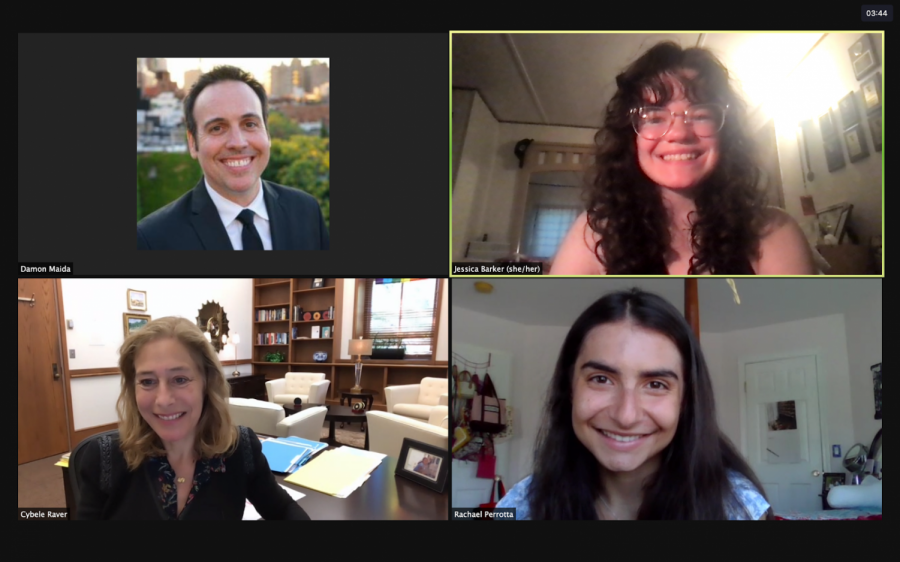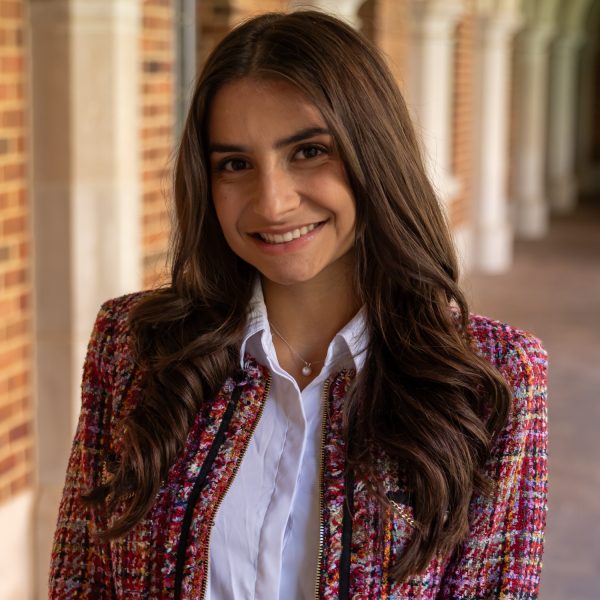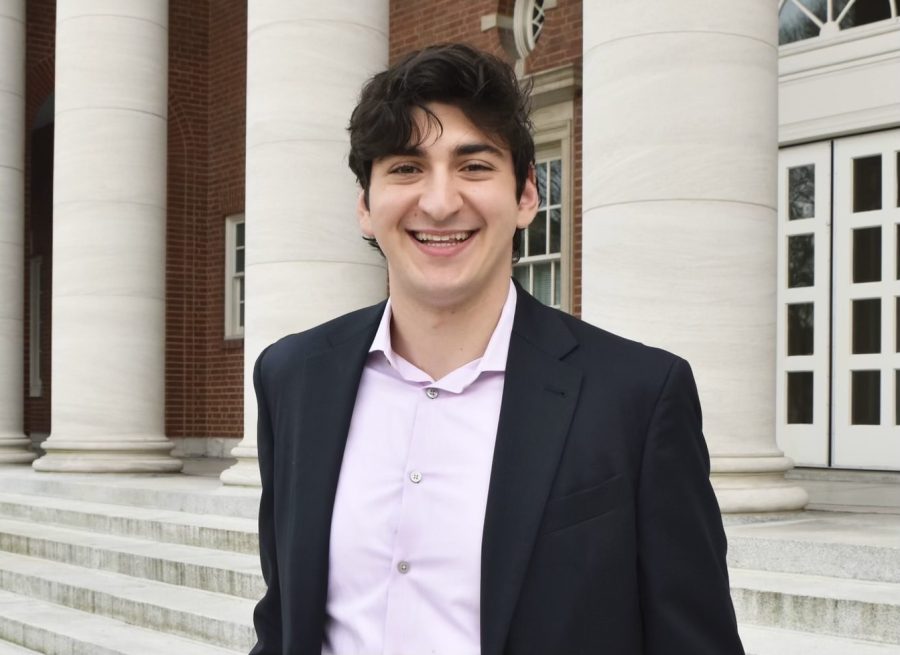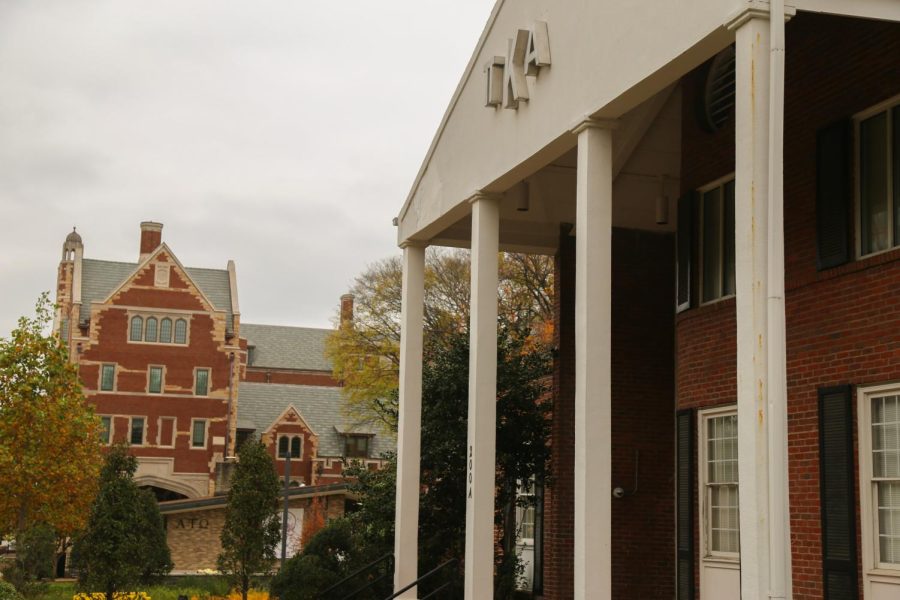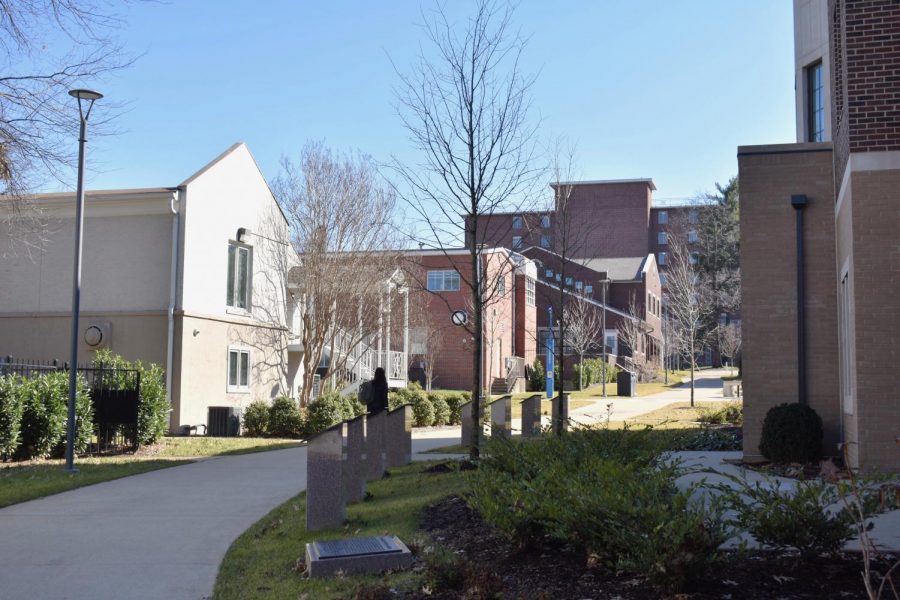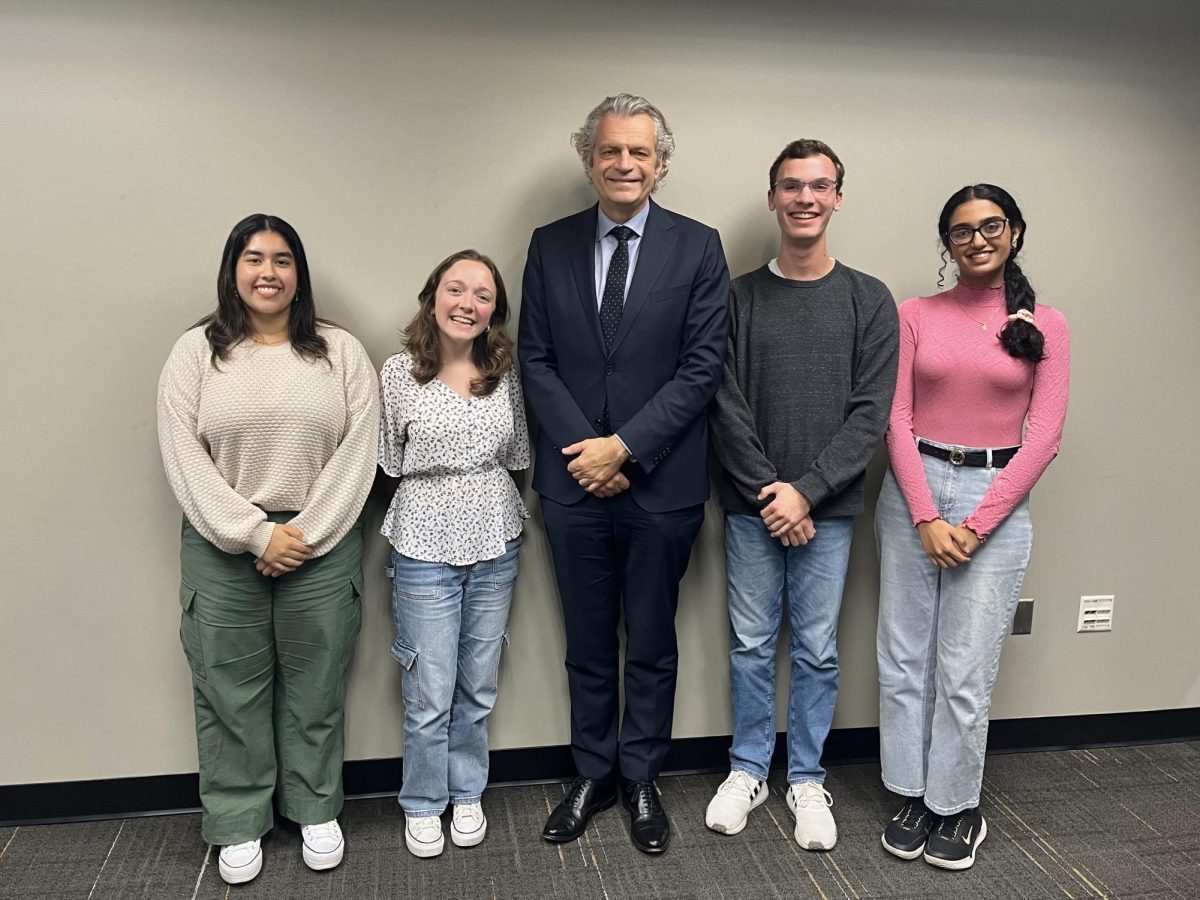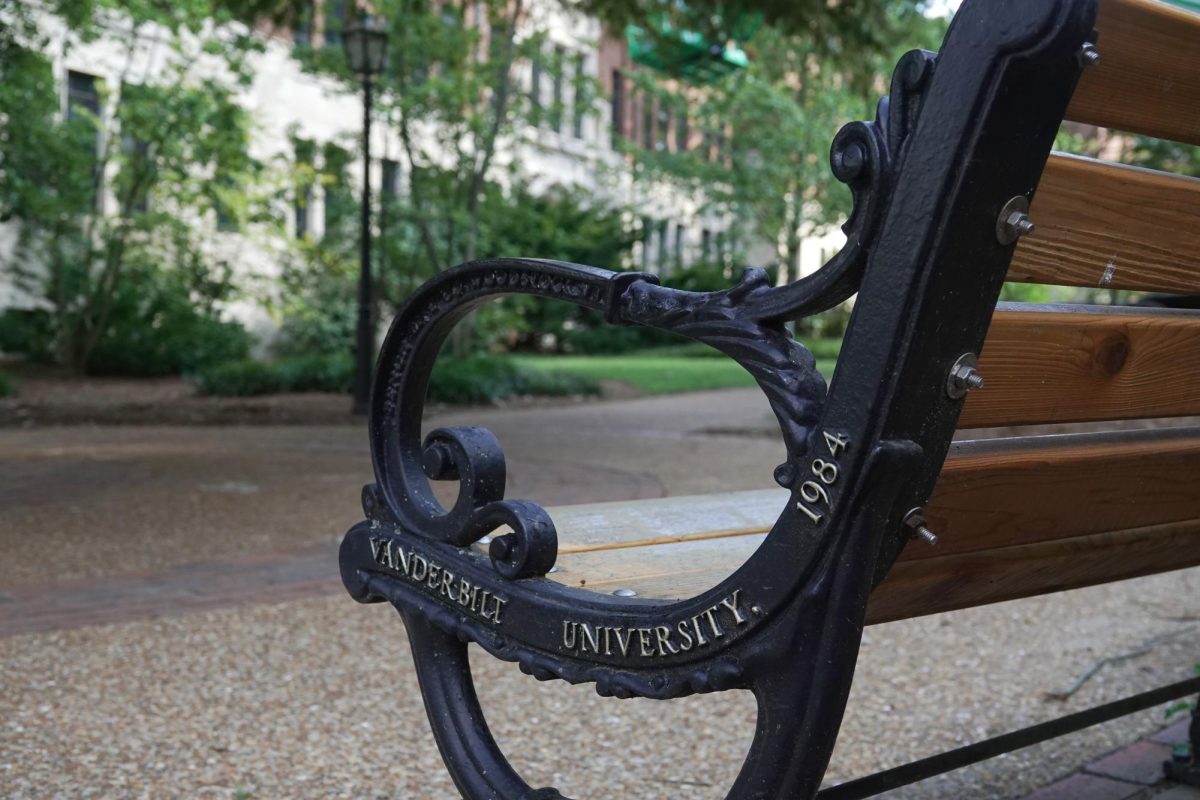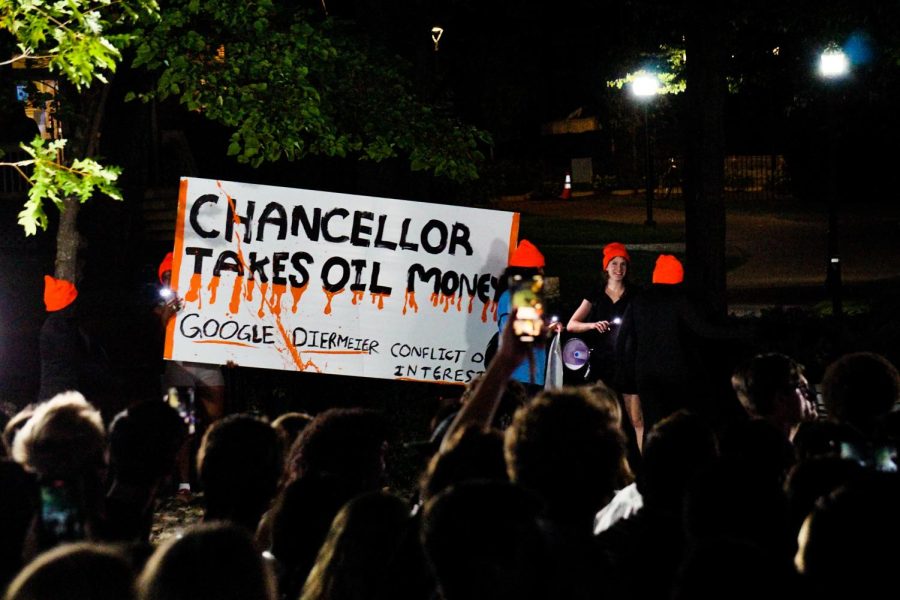C. Cybele Raver, Vanderbilt’s new provost and vice chancellor for academic affairs, assumed her new role on July 1, 2021. She replaced Susan R. Wente in the wake of Wente being appointed as president of Wake Forest University.
Raver spoke to The Hustler on July 27, 2021, about her thoughts on freedom of student expression, gender in higher education and goals for the university.
Vanderbilt Hustler: We know that you come to Vanderbilt from a background in research. How will your research in self-regulation and school readiness influence the way that you act as provost?
Provost Raver: Thanks, I just want to say it’s really an honor to be here and it’s a really exciting time to join Vanderbilt, especially post-pandemic. I am so impressed by and proud of how everyone has come through the last year and a half. I’m so deeply grateful to be here and happy to join everyone, particularly faculty, students, staff and everyone who came through during that period with such a level of hard work and innovation.
In terms of how that relates to research, my work is really focused on the intersection of the science of human development and public policy, and all the ways in which science can support the betterment of the human condition and society.
It’s also really important to highlight the ways in which my experience as an undergraduate in a research lab informs my commitment to undergraduate research and other undergraduate experiences in the field. I’m really clear about a collaborative and team-based approach. That was important to my experience as a young scientist, and is now important to my experience as a senior leader.
The extent to which I am able to launch my own program of research and find federal funding for it and then have that level of federal research grants supporting my work has served as a guide for me in the ways that I hope to support faculty in their science, scholarship and creative endeavors.
What do you foresee will be your greatest challenges as provost?
I think any provost in any institution of higher education faces both tremendous challenges, but also tremendous opportunities. As we’ve just seen, getting through the COVID-19 pandemic was an extraordinary challenge. What I can say is that this is an incredibly exciting time for Vanderbilt. It’s a tremendous opportunity for me to join an institution that has such a legacy of rigor and relevance for the larger world.
The faculty, the students and the staff are all so deeply committed and so deeply collaborative. It’s been made clear in welcoming me how much everyone really likes to work together. I’m very excited about that. I think the values of respect and responsibility and connection are really clear here; there’s a strong sense of entering a very committed and connected community.
That notion of “the Vanderbilt way”—at first, I didn’t understand exactly what that meant. But, Chancellor Diermeier has outlined a remarkable vision for human capabilities, and the ways in which we can all support each other’s growth, development and belonging through collaborating and giving back to each other. It’s just a tremendous opportunity for me as a senior leader.
What do you view as “the Vanderbilt way,” in your own words?
You know, I think it’s going to be really important to reflect on his Chancellor Daniel Diermeier’s signature characteristics so that we are speaking as one. In my view, the key characteristics that Chancellor Diermeier has picked up on and amplified in thinking about “the Vanderbilt way” is about being preeminent and being able to achieve beyond what our initial expectations might have been. Basically, to set really high goals and then to achieve those goals, but in a way that is deeply collaborative and team-based. We don’t do that at the expense of each other’s success, but in fact, we do that together, build with each other and have a strong sense of belonging.
Alongside that sense of achievement not being at the expense of others, and an emphasis on undergraduate research, what are any goals that you have for Vanderbilt, not only in the year ahead, but in the next five years?
I will continue to try to amplify the strengths that already exist at Vanderbilt in terms of faculty research and take it to the next level. Faculty are really, really brilliant, talented and committed to doing work that not only strengthens the lives of our community in Nashville, but improves the lives of everyone in our nation. The extent to which having national, international or global impact for scholarship is as important as getting federal funding.
But, also being able to really strengthen both graduate and undergraduate research is a key priority. In that way, I hope to support my vice provosts in the Office of the Provost who have been leading those initiatives in that direction and to amplify and continue that upward trajectory.
The other piece is being able to give everyone the opportunity to reach their maximum potential. As a developmental psychologist, viewing human potential in a deeply optimistic but also scientifically grounded frame is really important. We know that with the right conditions, and in the right settings, people can achieve far more than they initially anticipated or believed about themselves and that’s very exciting.
You’ll be the university’s second female provost. What does this mean to you? As a woman in a position of power at a top university, how do you plan to promote gender equity and female empowerment within Vanderbilt and higher education?
First, it’s incredibly important for me to highlight and underscore my indebtedness to prior Provost Susan Wente for being the first female of the list. I think that female leadership, and leadership for me as a woman, is really grounded in recognizing and building upon the legacy of female leaders that come before me. I think there’s a lot of opportunity for programming around that to identify and celebrate past female leadership, but also to strengthen and support women in leadership across the university.
There are so many different ways that equity, diversity and inclusion, but particularly belonging, are central values to my leadership. I think gender is one of many lenses through which I really support these values. Every person should have a seat at the table, and everyone should be able to participate and lead in the ways that they are most excited to do and that benefits us all.
Other administrators have been asked about a movement for Vanderbilt to divest from fossil fuels, and recently there was a meeting between some of these administrators and student leaders regarding that very goal. What are your thoughts on this movement?
Higher ed respects the right of students, faculty and staff to make their voices heard on key issues, regardless of which issues those are. In this case, they are sustainability, environmental or climate concerns, and I think those are really important concerns.
The university is committed to being a safe space for scholars, faculty, students and staff to raise their voices on those issues so that we can exchange viewpoints and learn from one another. The purpose of the endowment, as with every university, is to support our students and our faculty. You probably know that the endowment provides crucial support for need-based financial aid for our students, as well as support for cutting-edge research that includes cutting-edge research on environmental sustainability and energy. It’s a really difficult and complex issue. It’s important that I’m clear that the endowment doesn’t serve as an advocacy tool, but rather serves the purpose for which it’s been structured.
Freedom of expression is important to recognize, but in the context of the complexity of the issue so that we can all learn how to exchange ideas and think through the complexity together.
In what specific ways will you work to ensure that students and professors have the ability to have that freedom of expression on campus?
I think that’s an ongoing discussion and debate and dialogue. Currently, we have a great way of balancing the ability to speak one’s mind with the ability and the responsibility of maintaining community codes of civility and respect so that everyone has a sense of belonging.
Similar to the divestment movement, there have also been some conversations on campus about abolishing the Interfraternity Council and Panhellenic Greek Life. What are your thoughts on this movement and how will you go about addressing it?
I think students have the opportunity to build leadership skills by starting student organizations and we accord students the opportunity to form and lead student groups. Corresponding to that opportunity is the responsibility for all organizations and student groups to conduct themselves with high standards that are aligned with our commitment to a safe, welcoming and inclusive campus. As I mentioned earlier, I think those values are really important pillars of student life and the opportunity to develop student leadership skills. When student conduct violations occur, we take action, investigate and hold accountable those responsible. So, I think that’s the right path and there’s lots more to figure out and discuss going forward.
Are there any other initiatives, or is there anything else about yourself, that you would like to share with the greater Vanderbilt community?
I’m very, very excited to get to know everyone here and I’m really excited to get to know Nashville and the surrounding region! I think it’s one of those moments of bringing a fresh perspective, but also a sense of energy, to a new setting, which is really inspiring.
Answers have been edited for length and clarity.

